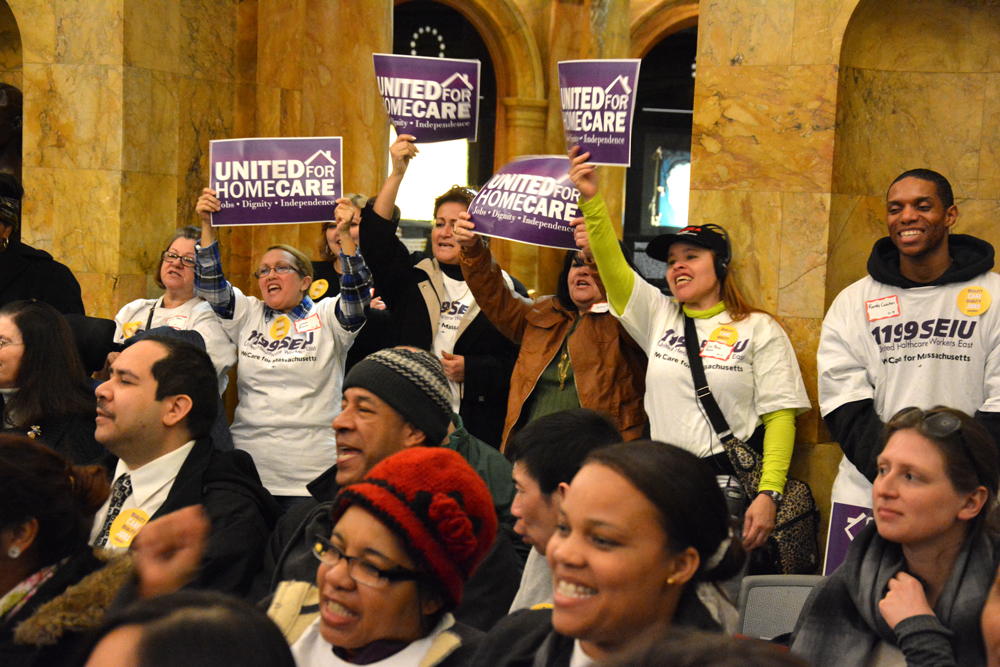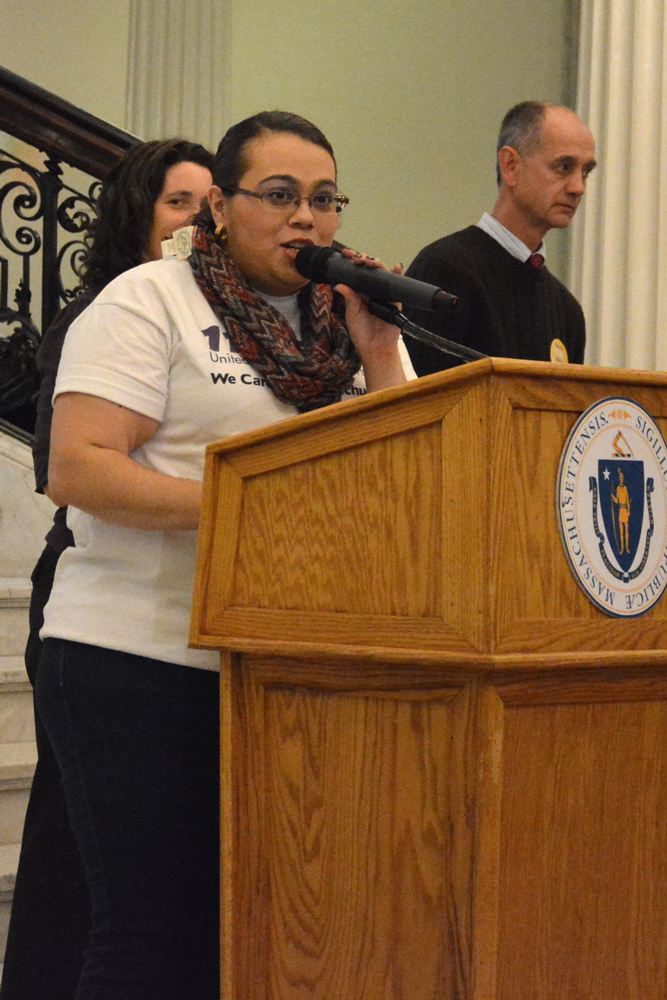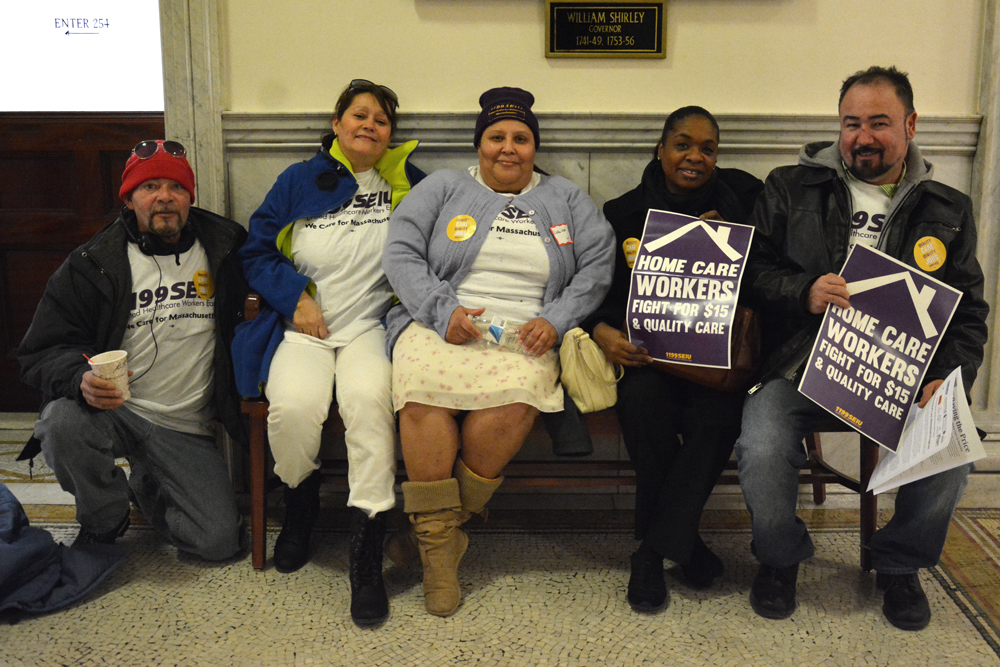PCA Program Overview
 In Massachusetts, 26,000 – 30,000 PCAs work for approximately 20,000 employers. This program directly affects over 50,000 people in MA, either by giving them independence, or by giving them a job! It’s a win-win program.
In Massachusetts, 26,000 – 30,000 PCAs work for approximately 20,000 employers. This program directly affects over 50,000 people in MA, either by giving them independence, or by giving them a job! It’s a win-win program.
The Personal Care Attendants Program is still evolving in Massachusetts. The basis of the Personal Care Attendants program is that the person with a disability is the actual employer of their PCA. The employer determines when their PCA comes, and the employer determines exactly what they need the PCA to do. The employer hires, and fires, and fills out time sheets. In the past, employer had to find PCA's on their own. In Massachusetts, Mass PCA Directory  provides an online mechanism for both finding a PCA and finding a PCA job. Follow the Mass PCA Directory on Facebook at facebook.com/MassPCA
provides an online mechanism for both finding a PCA and finding a PCA job. Follow the Mass PCA Directory on Facebook at facebook.com/MassPCA  . And visit our For Consumers page for advice on being an employer.
. And visit our For Consumers page for advice on being an employer.
 reported on this issue in December, 2010.
reported on this issue in December, 2010.
---by Amy
PCA Program Participation Process
In order to be eligible for services, a MassHealth member must require physical assistance in two or more Activities of Daily Living, and have approval from a medical doctor or nurse practitioner for PCA services.
member must require physical assistance in two or more Activities of Daily Living, and have approval from a medical doctor or nurse practitioner for PCA services.
- Member contacts or is referred to a Personal Care Management Agency (see below).
- PCM completes initial evaluation to determine if member qualifies for PCA services and determines requested hours of service.
- RN and Occupational Therapist go to member's home for initial evaluation.
- Member, licensed physician, OT and RN all sign the initial evaluation.
- PCM sends initial evaluation to MassHealth Prior Authorization Unit (PAU).
- PAU reviews evaluation and decides whether to approve, modify or deny requested service hours.
- MassHealth informs member, PCM and Fiscal Intermediary of decision.
- Once hours are approved, member (or surrogate) works with PCM to develop the service agreement, outlining roles and responsibilities and back up plans.
- Member works with the Fiscal Intermediary (see below) to enable member to pay PCA's with MassHealth funds.
- As part of the consumer agreement, member selects either consumer-delegated or consumer-directed option for PCA services.
- With PCM/FI training, member recruits, interviews, selects, trains, schedules, pays and fires PCAs.
The Fiscal System in Massachusetts
- Medicaid reimburses states (via MassHealth in MA) for a percentage of PCA services, but these services are defined as an optional (i.e. some states do not choose to provide PCA services - Nursing home care is guaranteed to all Medicaid recipients who cannot afford it, and states HAVE to pay a percentage. This difference is the "institutional Bias" of the Medicaid system.) The optional tag also means that states can cut back or eliminate an existing program, making every budget cycle an opportunity and requirement for activism and advocacy!
- MassHealth is the state provider of Medicaid, and provides the money for PCA services for people with low income. People with disabilities who are above the maximum income get the same services by paying into Common Health.
- Fiscal Intermediaries, such as Cerebral Palsy of MA, Stavros and Northeast Arc collect timesheets, and pay PCA’s with the money from MassHealth. All PCA’s get the same hourly wage.
- Personal Care Management Agencies (PCMs) provide evaluation services for MassHealth. Consumers are evaluated annually for eligibility (needing 2 or more Activities of Daily Living (ADL). If eligible, the PCM then determines how many weekly hours the member can receive. PCM’s also train members in how to be an effective employer, and in a some cases, help find a surrogate to manage the employment duties required.

- - - - - - -
ADL: Activities of Daily Living include mobility (including tranfers), medications, bathing and grooming, dressing and undressing, range-of-motion exercises, eating and toileting.
